Celebrating Nursing Week at BCHS!
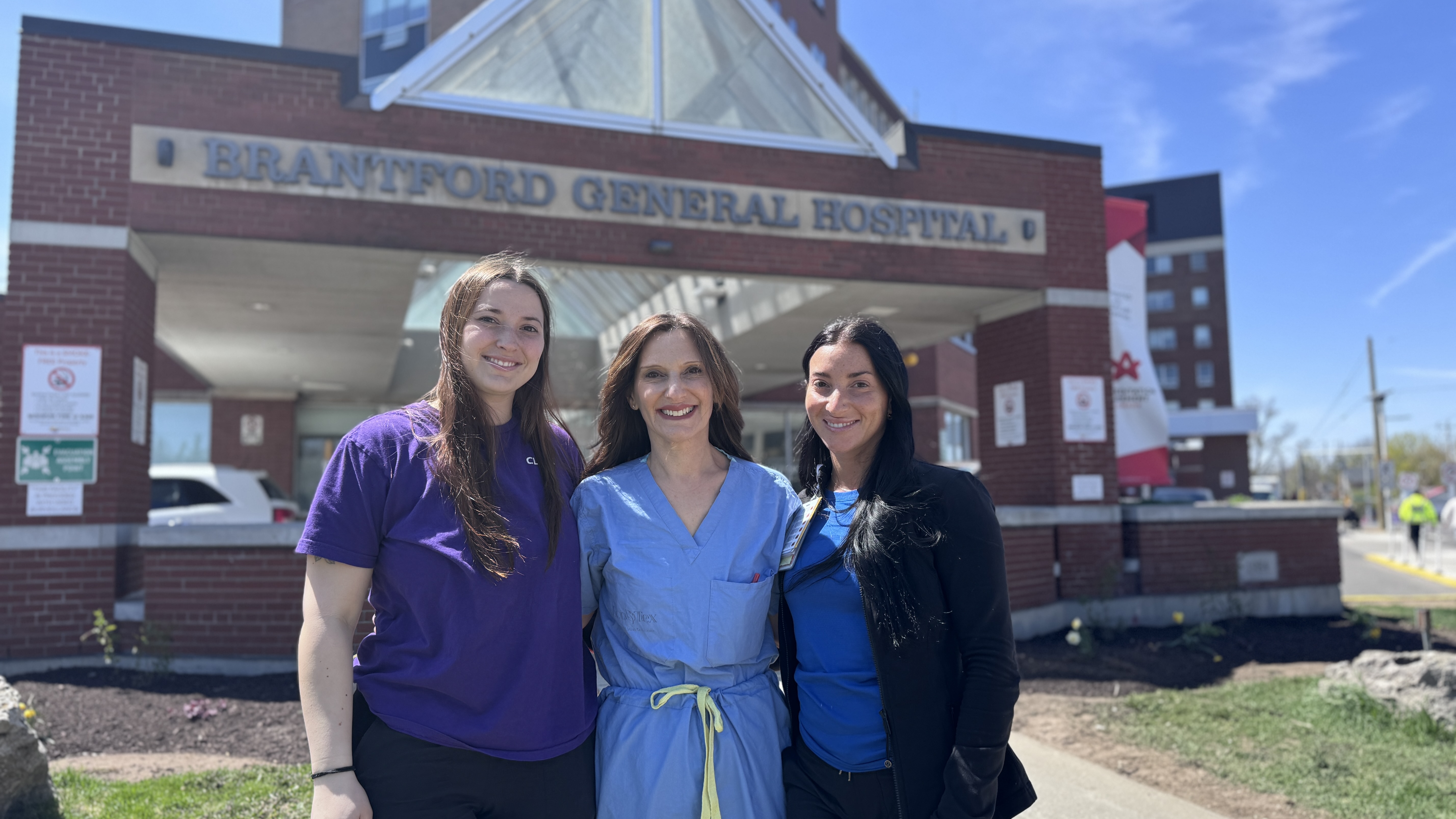
Nursing Week Features:
It's Nursing Week from May 12 to May 18, 2025! This special week is dedicated to honouring the incredible dedication, compassion, and expertise of nursing staff. Throughout the week, we will be spotlighting some of our outstanding staff members, sharing their inspiring stories and insights.
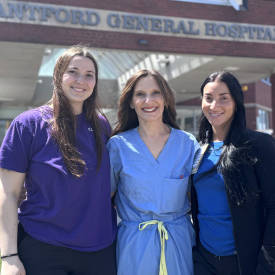
Angela Coleman, OR RN
(See photo: Angela's (centre) daughters, Nadia Coleman, Patient Registration Clerk (left) and Cassandra Coleman, RPN ED, also work at BCHS!)
Can you tell us about your journey in nursing, including the different roles you've held throughout your career and how long you've been in the field?
I started nursing at The Toronto Western Hospital as a staff RN on a trauma/urology unit. I knew early in my career that the operating room was a passion of mine. While in Toronto, I took the perioperative certificate program at George Brown College. I did my clinical rotation experience at the Western Hospital and was hired shortly afterwards. I have been working as a perioperative nurse since then. It has been a total of thirty-three years. Before coming to Brantford, I also worked in Hamilton, St. Joseph's Hospital. When I graduated from nursing, it was very difficult to get a job, as many hospitals wanted nurses with experience. It took me seven years to get a job in my hometown of Brantford.
What is unique about your specialized role that people might not realize or expect?
Physical stamina is crucial to withstand the demands of this specialized, fast-paced nursing environment. The essential skills range from technical proficiency, monitoring of a sterile environment that is vital to prevent infections, clinical expertise, and strong communication, teamwork, and emotional resilience.
What is your favourite thing about the work that you do as a nurse in this area / What is your “why” for this type of nursing
It is the only type of nursing I have ever done, and I remain passionate about doing it. I am exceptionally fortunate as I get to work with a wonderful group of dedicated professional co-workers.
What advice would you give other nurses if they are interested in getting into your area of practice?
I would encourage them to arrange an observation day in the operating room to see if, in fact, this is the type of nursing they would need. I would also encourage taking the perioperative certificate course.
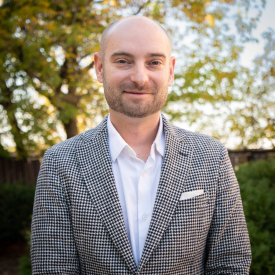
Stuart Paavola, Vice President, Clinical Services & Chief Nurse Executive
Can you tell us about your journey in nursing, including the different roles you've held throughout your career and how long you've been in the field?
I started my nursing journey at Laurentian University, where I completed my Bachelor of Science in Nursing in 2007. After graduating, I started my nursing practice on the neurosurgical unit at the Hamilton General Hospital.
I worked there for 5 years and spent the last 2 and a half years as the unit charge nurse before transitioning into my first formal management position as a Site Administrative Manager (After Hours Manager) covering all sites across Hamilton Health Sciences.
After nearly 2 years in that role, I transitioned once again into Clinical Management, and over the next 6 years, managed musculoskeletal and geriatric rehabilitation units, acute medicine, and the emergency department, all at the Juravinski Hospital.
After spending the first 13 years of my professional career at a large teaching hospital, I accepted a position as Director of Emergency Medicine and Regional Stroke programs at a large community hospital (Grand River Hospital) in Kitchener-Waterloo. Four years in Kitchener-Waterloo then led to the position I'm in now at Brant Community Healthcare System.
What is unique about your specialized role that people might not realize or expect?
The Chief Nursing Executive oversees and directs nursing services within a hospital. The role involves a wide range of responsibilities, including strategic planning with a vision for the future of our nursing care, policy development, quality improvement, and fostering a positive work environment for nurses, including promoting professional development. In this role, I sit on the hospital Board and represent the voice of our nursing staff.
What is your favourite thing about the work that you do as a nurse in this area / What is your “why” for this type of nursing
The nursing profession has a vast knowledge base, specializing in numerous fields from cradle to grave. With such broad experience, nurses bring unique perspectives to several different challenges faced within the healthcare system, and the nature of their work has made them elite problem solvers. Tapping into this skill set and working with nurses across the organization to drive quality improvement and solve problems that were previously thought to be unfixable brings me the greatest joy in this position.
What advice would you give other nurses if they are interested in getting into your area of practice?
Be brave and move around to get as much experience in various clinical settings as possible; that is the best way to understand the complex intricacies of our healthcare system. Whether you're a front-line nurse, a nurse manager, or an educator, if you have experience in the emergency department, consider working in acute medicine for a few years. If you've spent most of your career in an inpatient department, consider working in ambulatory care for a while.
I remember when I was managing acute medicine, telling the manager of the emergency department that I knew how difficult her role must be. Then, when I moved into that very role, I realized how wrong I was.
I honestly didn't appreciate or respect how isolating and challenging that environment was. Don't assume anything and listen to others with a genuine belief that they might know something you don't.
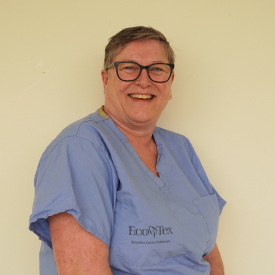
Mandy Hamilton, ACU RPN
Can you tell us about your journey in nursing, including the different roles you've held throughout your career and how long you've been in the field?
I started my career on a surgical floor. When I started, RPNs could do only bedside care; I learned many new abilities over the years. RPNs have come a long way in 40 years. I have worked in many different areas, i.e., float pool, day surgery, ambulatory care, and all other areas. I met new people and learned new skills that have assisted me in my career.
What is your favourite thing about the work that you do as a nurse in this area / What is your “why” for this type of nursing
I enjoy educating my patients, and in ambulatory care, we do a lot of teaching. This has been an area I have enjoyed over the years.
What advice would you give other nurses if they are interested in getting into your area of practice?
The only thing I can say is that some days may seem awful. You may not always feel like your job is fulfilling. Still, it just takes that one patient who says thank you, and you can see how much they really appreciate you, to remember why you went into nursing.
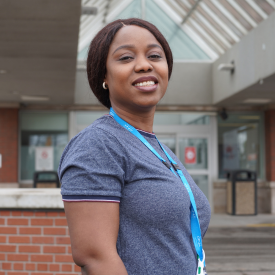
Bosede Teju, MH RN
Can you tell us about your journey in nursing, including the different roles you've held throughout your career and how long you've been in the field?
My journey in nursing has been both dynamic and enriching. I began my career in a physician’s office, which provided a strong clinical foundation and insight into patient-centred care. Over the years, I have expanded my practice across various settings, including community health, correctional facilities, long-term care, forensic psychiatry, and specialized mental health institutions.
These roles offered unique experiences that contributed significantly to my professional growth. In addition to bedside nursing, I have frequently taken on leadership responsibilities as a charge nurse, where I was responsible for staff coordination and clinical oversight. I have been practicing as a registered nurse for approximately eight years.
What is unique about your specialized role that people might not realize or expect?
One of the most influential lessons I’ve carried throughout my career came from Dr. Mitzi Mitchell, a professor who emphasized the power of observation in nursing practice. This principle has been pivotal in my approach to mental health care.
Observation allows for early identification of subtle behavioural shifts, risk factors, and opportunities for therapeutic engagement. Leadership roles, such as charge nurse, enhance team dynamics and promote effective delegation. Beyond the clinical environment, this skill has positively shaped my decision-making and interpersonal interactions in everyday life.
What is your favourite thing about the work that you do as a nurse in this area / What is your “why” for this type of nursing
There is a well-known saying: “Nursing is a calling, and nursing chooses you.” During my final year of training, I strongly considered surgical nursing, nephrology, or acute care. A colleague once remarked, “You’d be a great mental health nurse,” which I initially dismissed.
However, my professional path led me to specialize in mental health nursing. I have remained in this field for the past eight years. What continues to inspire me is witnessing the transformation of individuals, from acute psychiatric crises to restored mental wellness.
Contributing to that journey and supporting patients in regaining autonomy and quality of life is a privilege and a profound source of fulfillment.
What advice would you give other nurses if they are interested in getting into your area of practice?
My foremost advice is to invest in self-awareness. Understanding your strengths and areas for growth will help you determine if mental health nursing is the right fit.
This specialty demands emotional intelligence, empathy, patience, and strong communication skills. It also requires the ability to remain calm and grounded in high-stress situations.
When you know yourself well, you are better equipped to choose a path that challenges you and aligns with your core values and professional aspirations.
We extend our heartfelt gratitude to all nurses for their unwavering commitment to patient care and their invaluable contributions to BCHS and the wider community.




